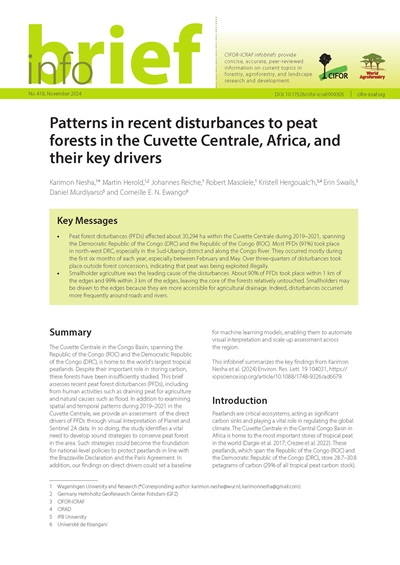Amid the discontent of developing countries about the lack of reliable finance for Reducing Emissions from Deforestation and forest Degradation (REDD+), the issue of verification of results-based activities reached an impasse in the 2012 Doha negotiation round of the UN Climate Convention, leading to the suspension of the formulation of a REDD+ Methodological Guidance. The disillusion about REDD+ finance mainly stems from the weakness of demand on carbon markets. Presently, development assistance is the main funding source, which brings up the old debate around aid conditionality, because obviously ‘results-based' implies conditionality for funding. This paper assesses the issues of REDD+ financing and verification in the context of the negotiation positions of the key countries in the present debate. In its preparation, a number of interviews with REDD+ negotiators have been undertaken, in order to better understand the different positions. The study first narrows down the focus on international verification to UN-based funding mechanisms, while bilateral and multilateral funding for individual country activities will usually be granted under individually agreed conditions. Summing up, the study proposes options for the consistent verification of all Nationally Appropriate Mitigation Options, of which REDD+ is only one, under a transparent, peer-reviewed International Assessment and Review process. The more realistic proposal seems to be a second-best option of verifying REDD+ activities only. A REDD+ Effectiveness Assessment is proposed for internationally results-based finance for REDD+ emission reductions at national level. Different modalities are discussed for the choice of reviewers.
Download:
DOI:
https://doi.org/10.17528/cifor/004128
Altmetric score:
Dimensions Citation Count:

























